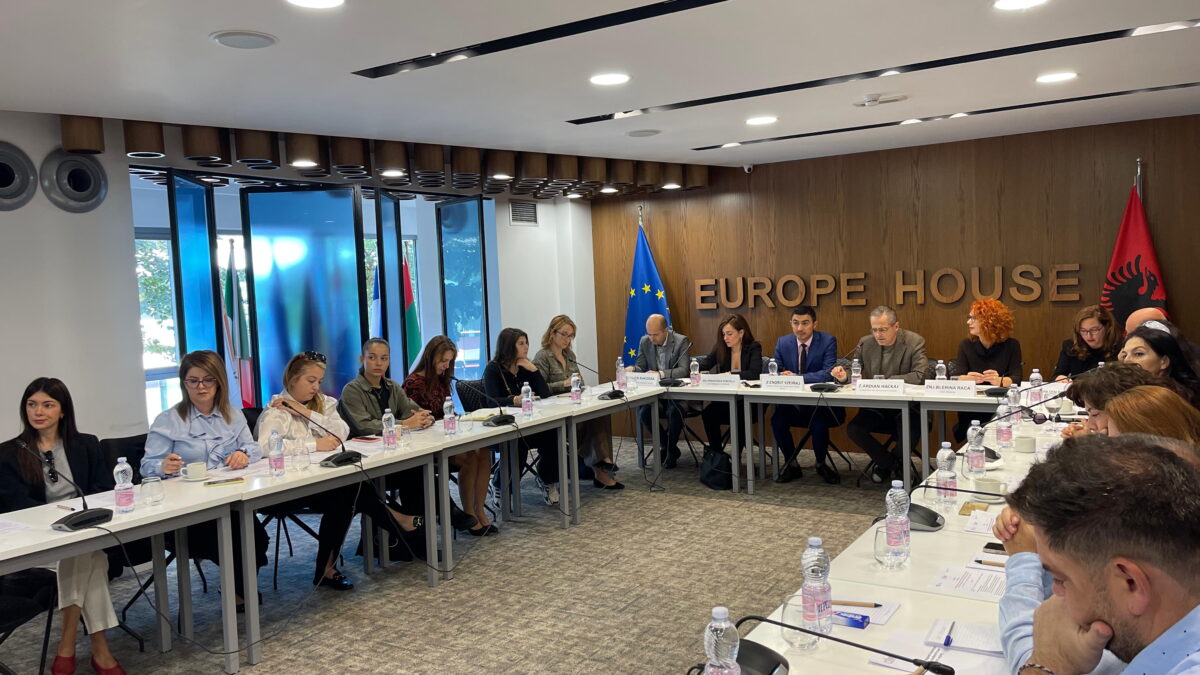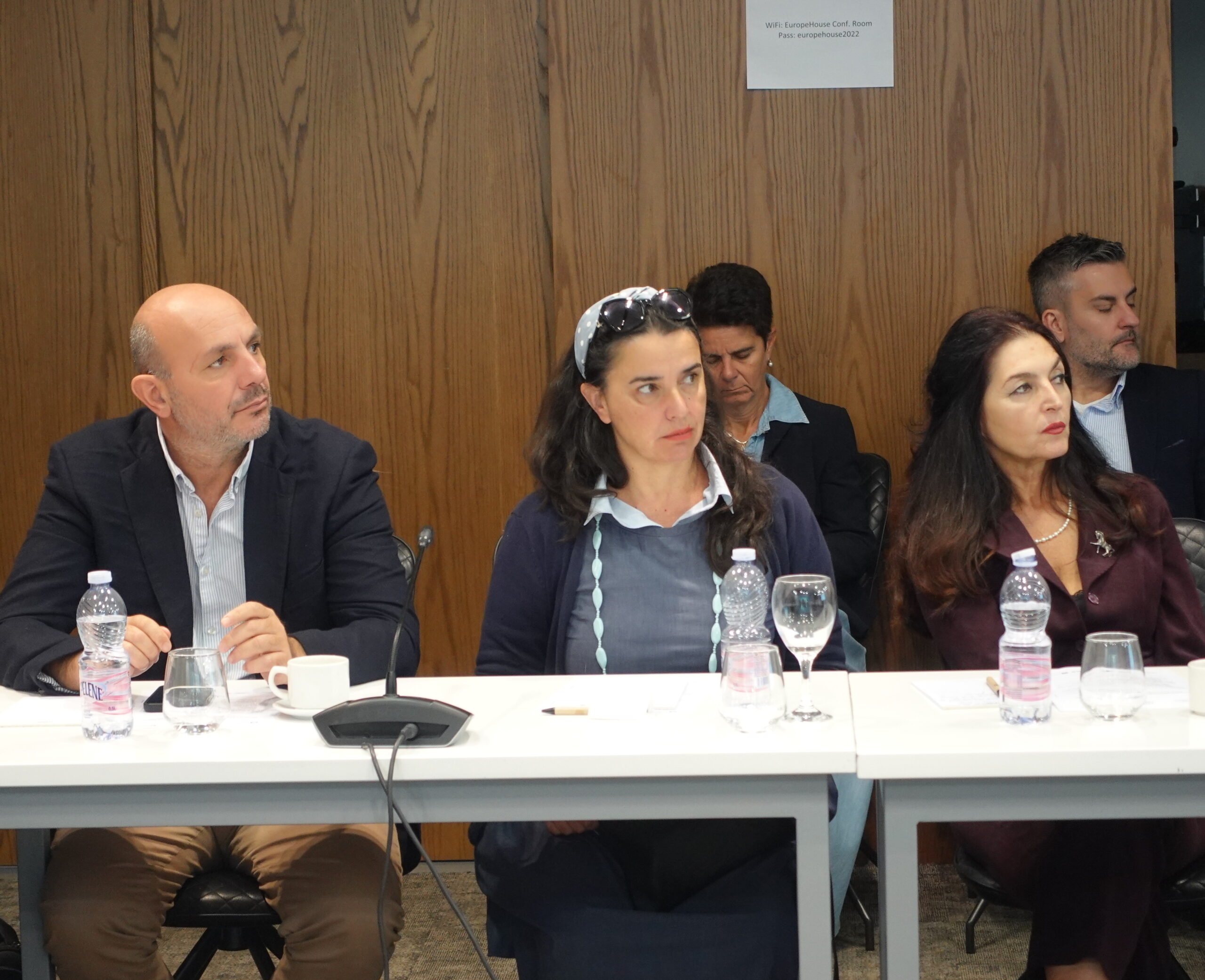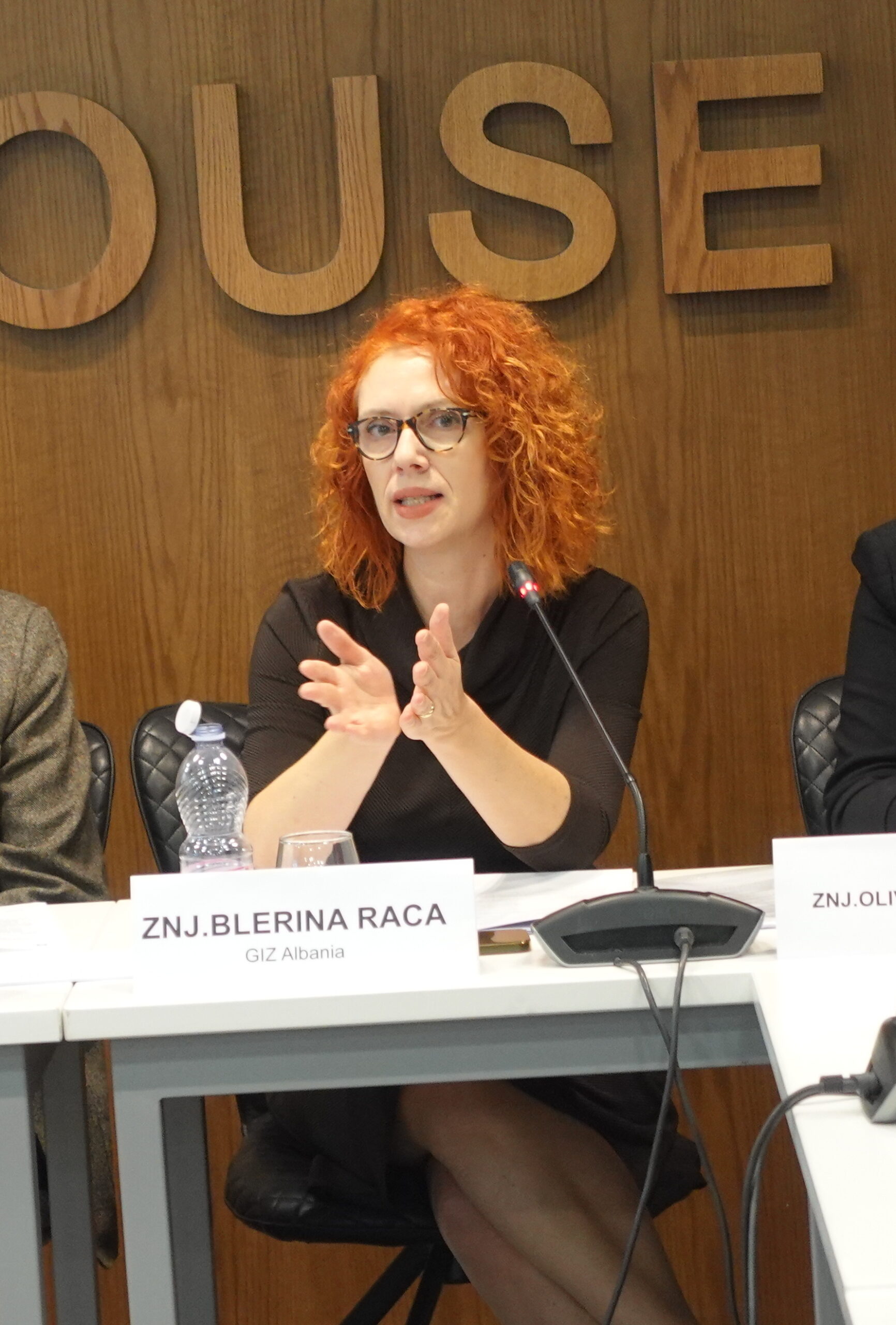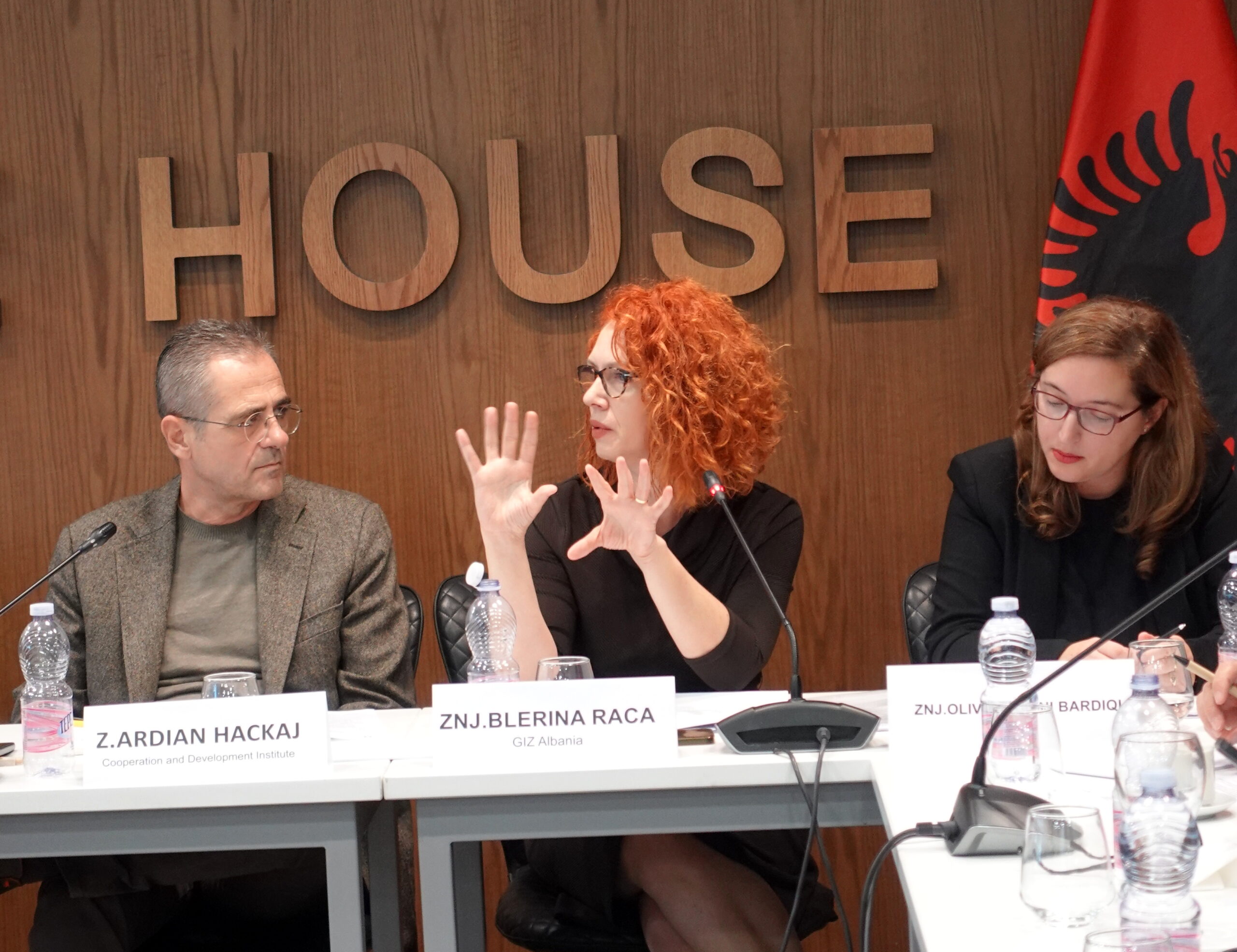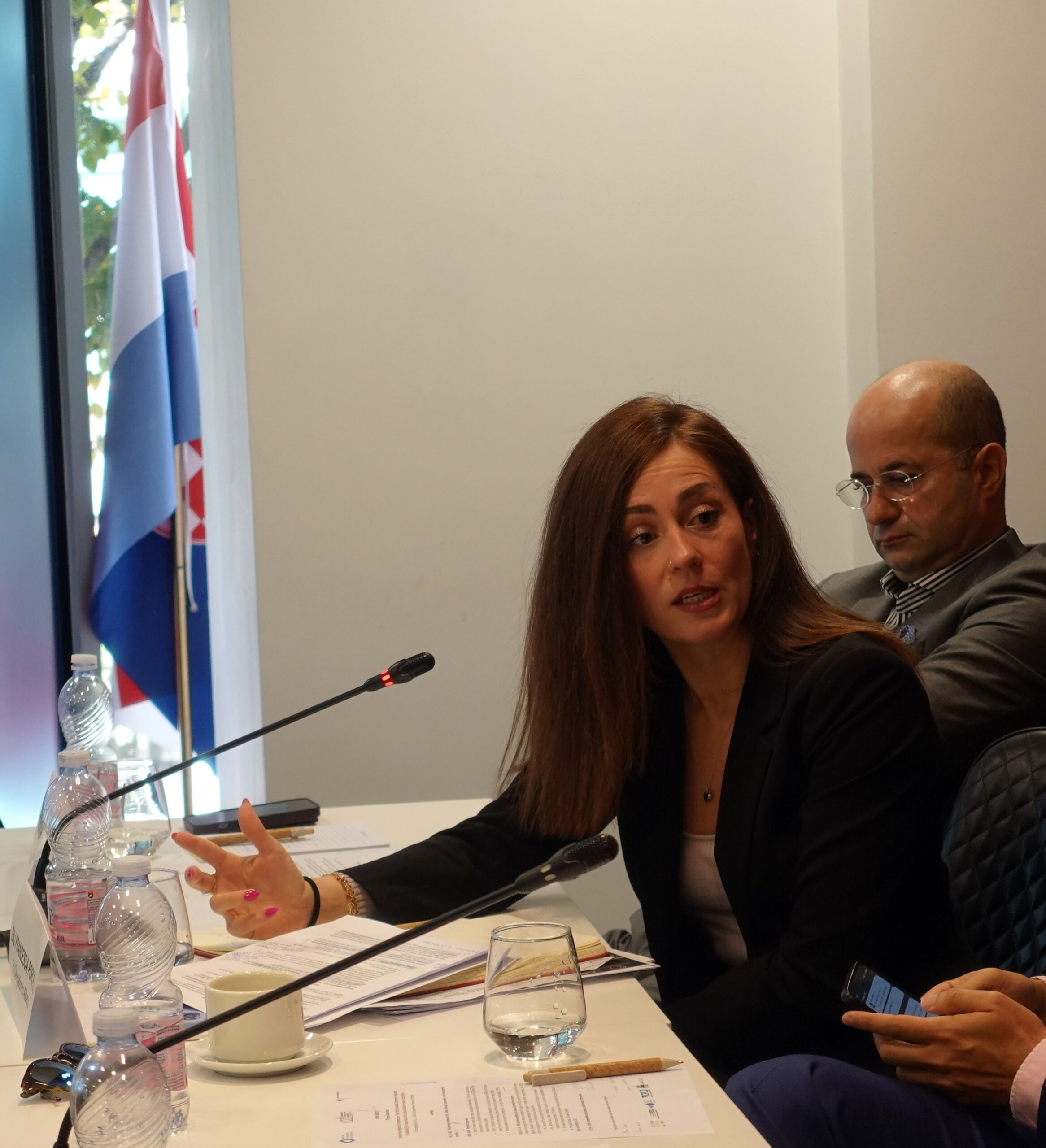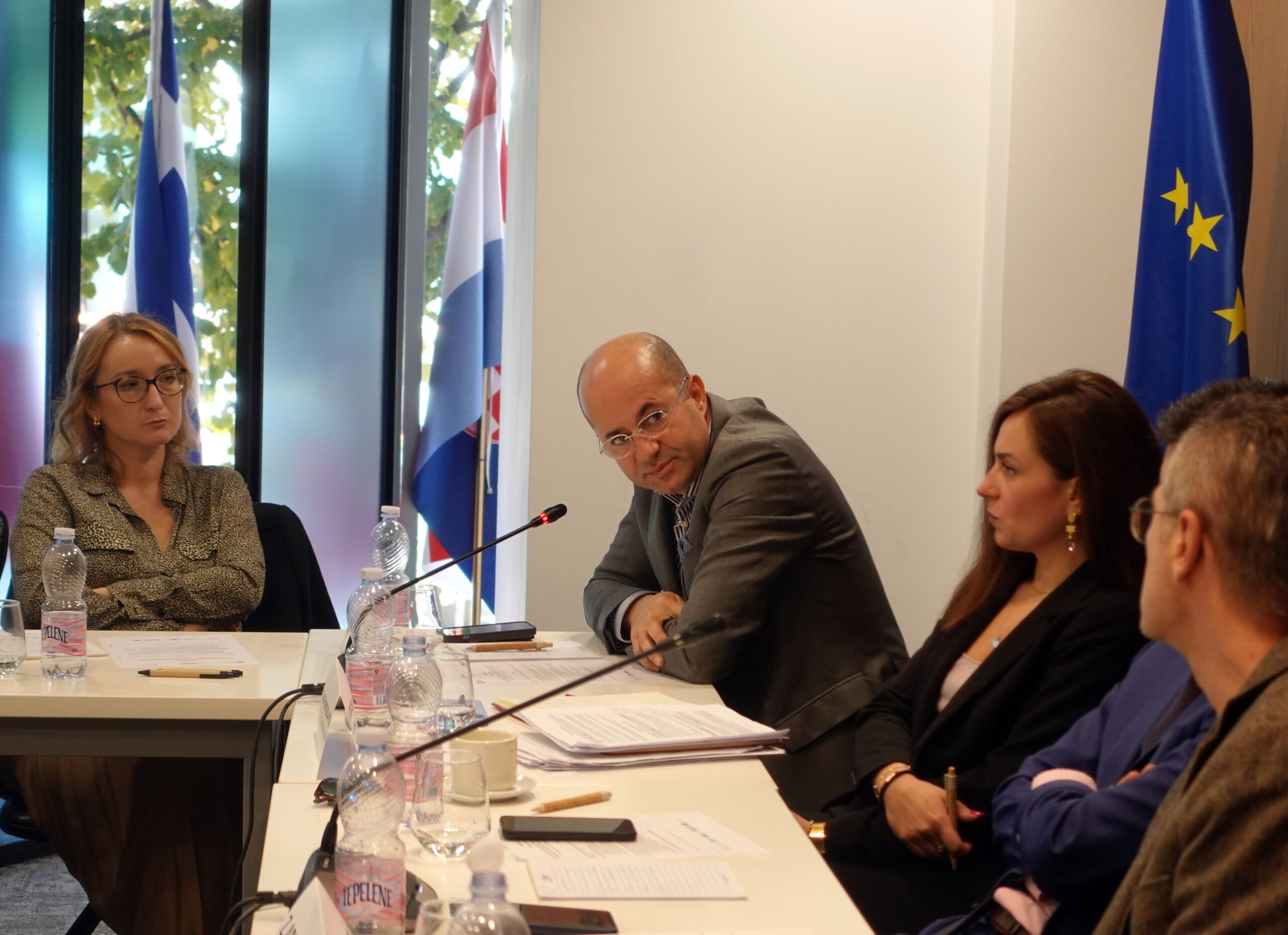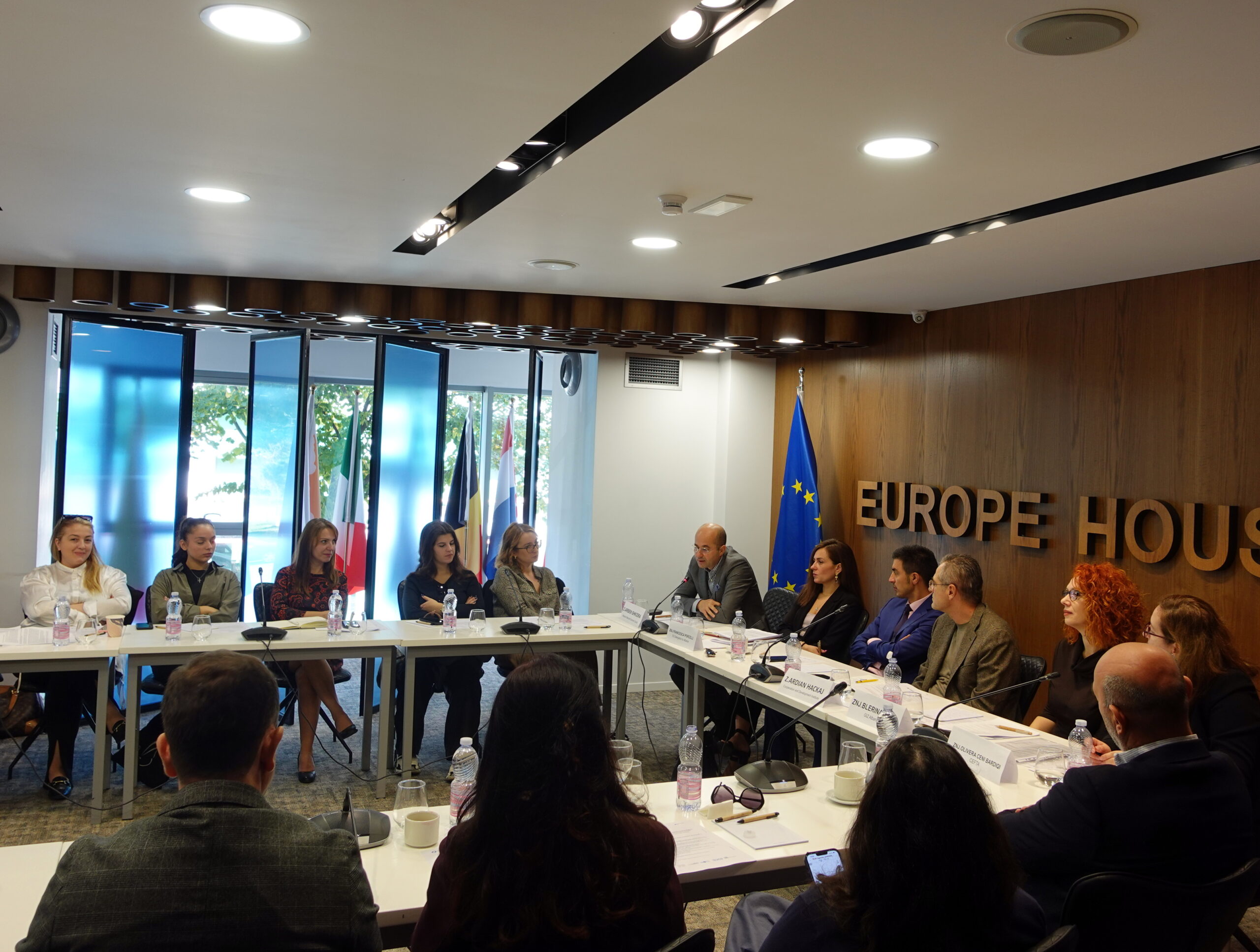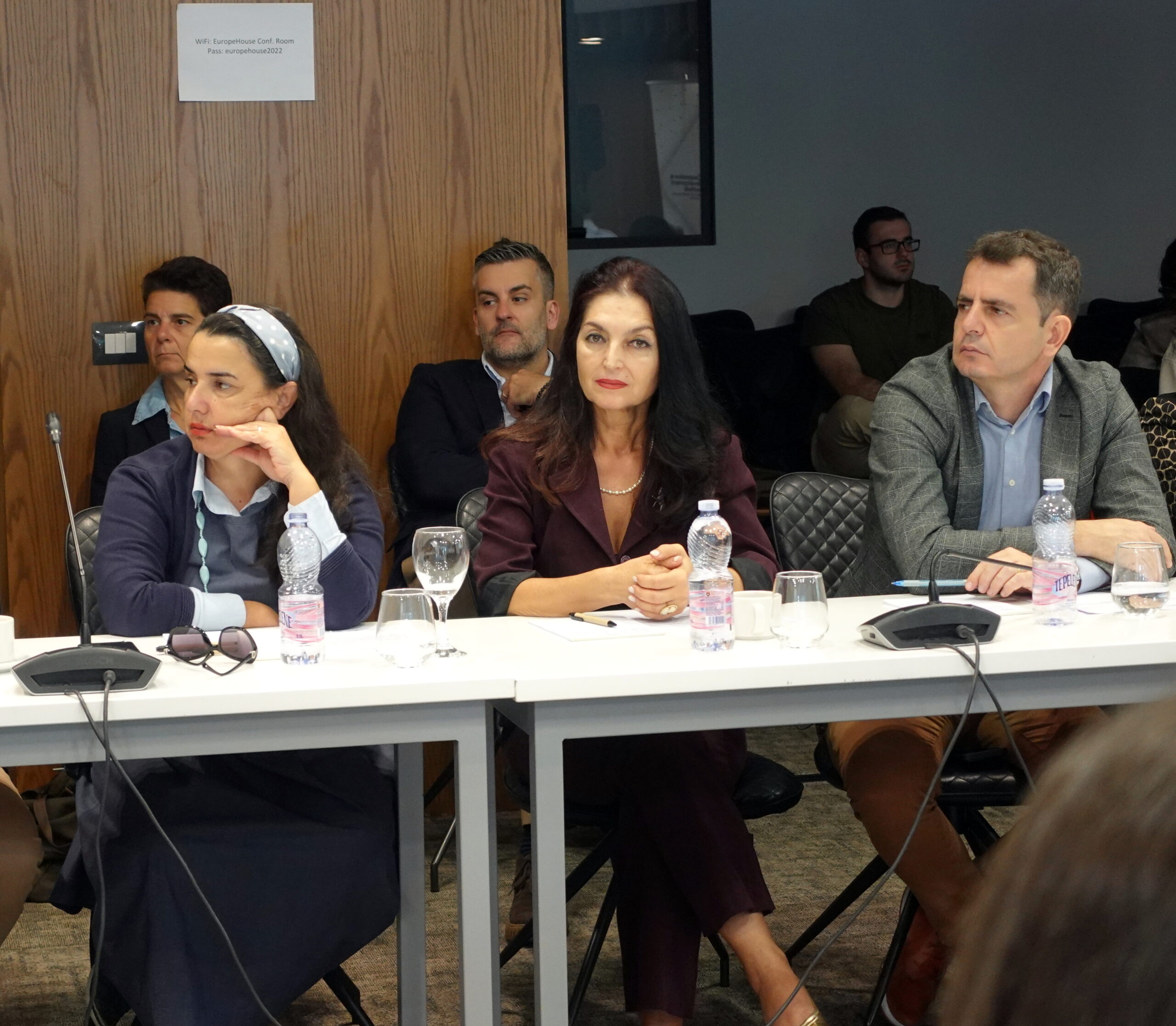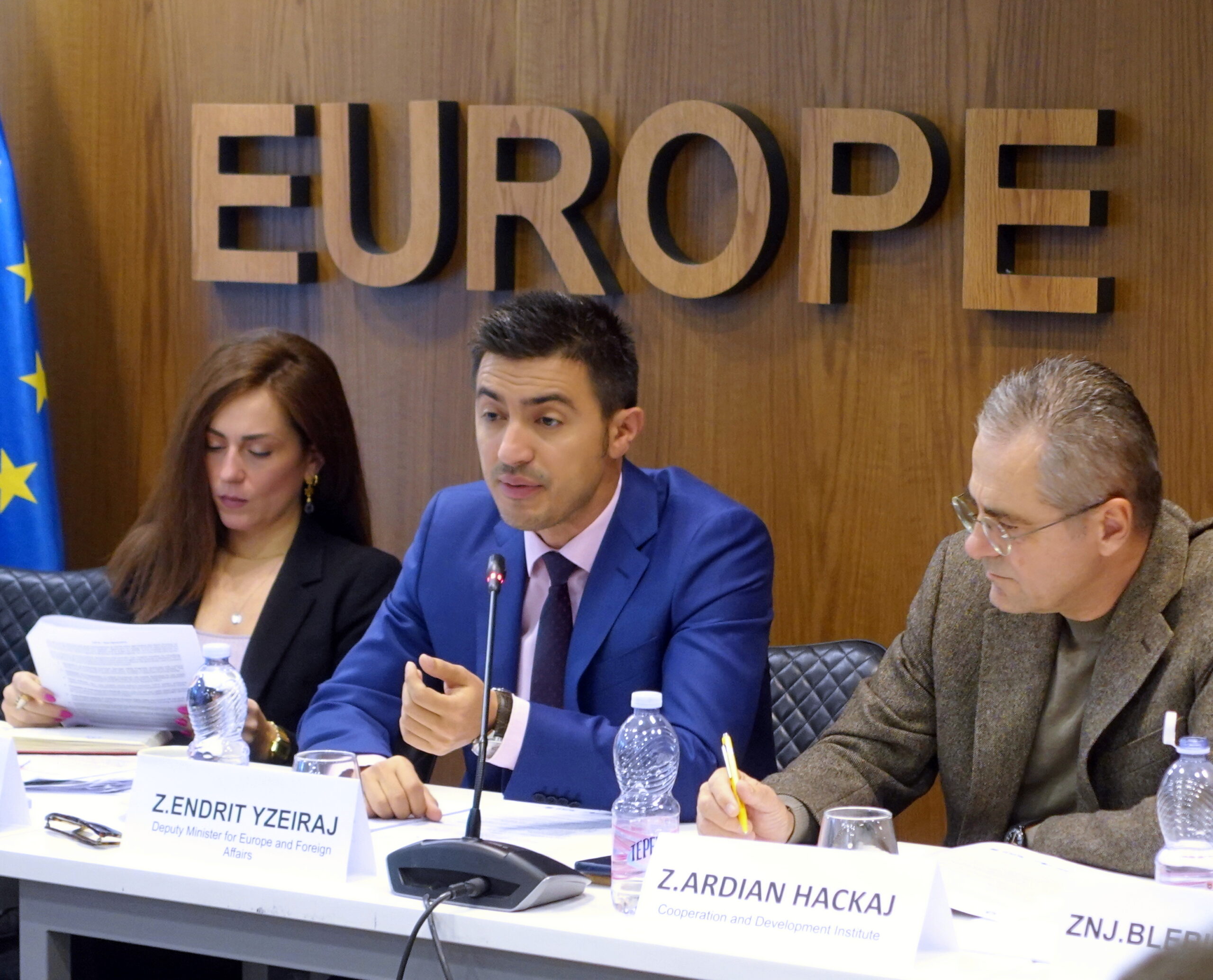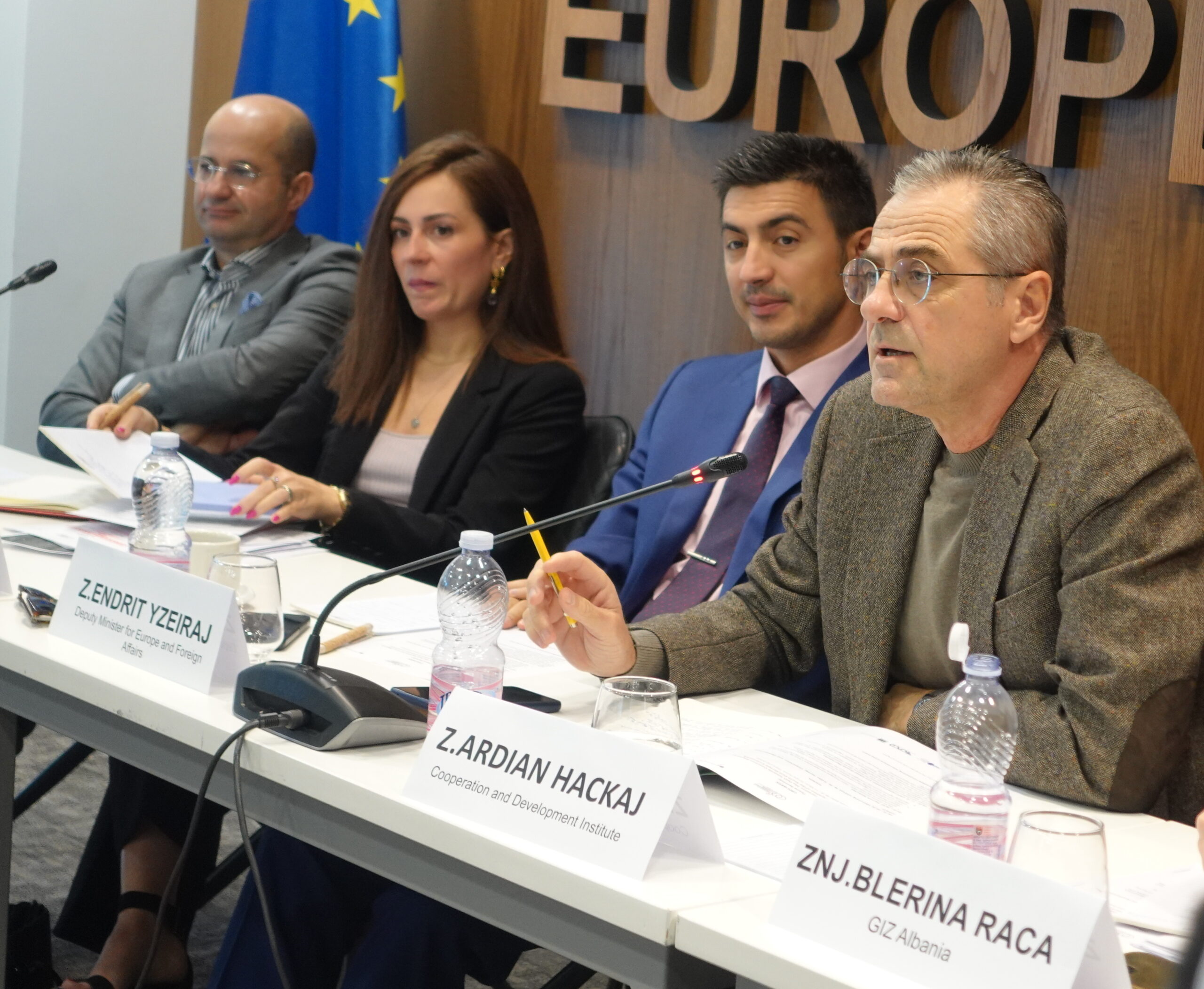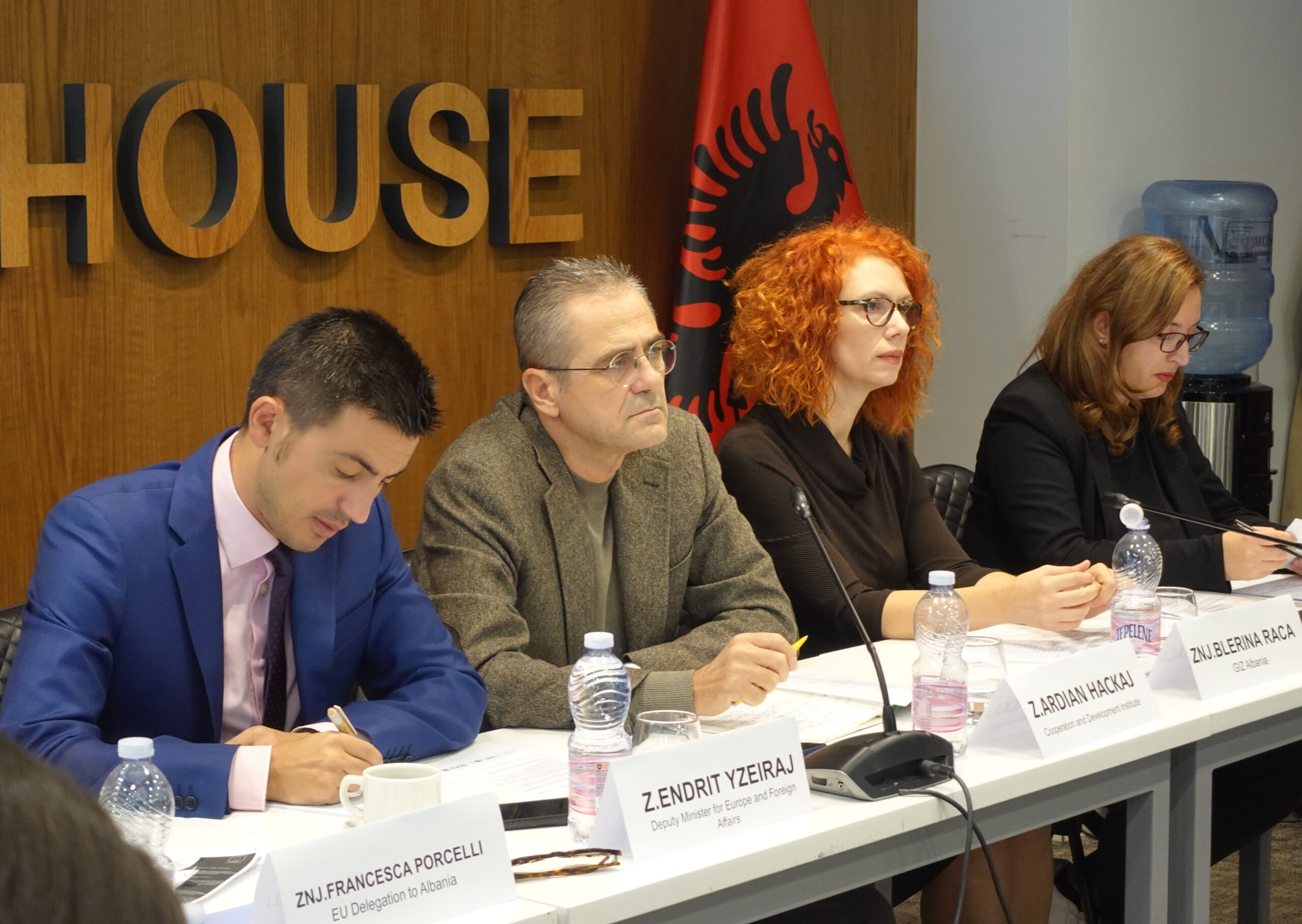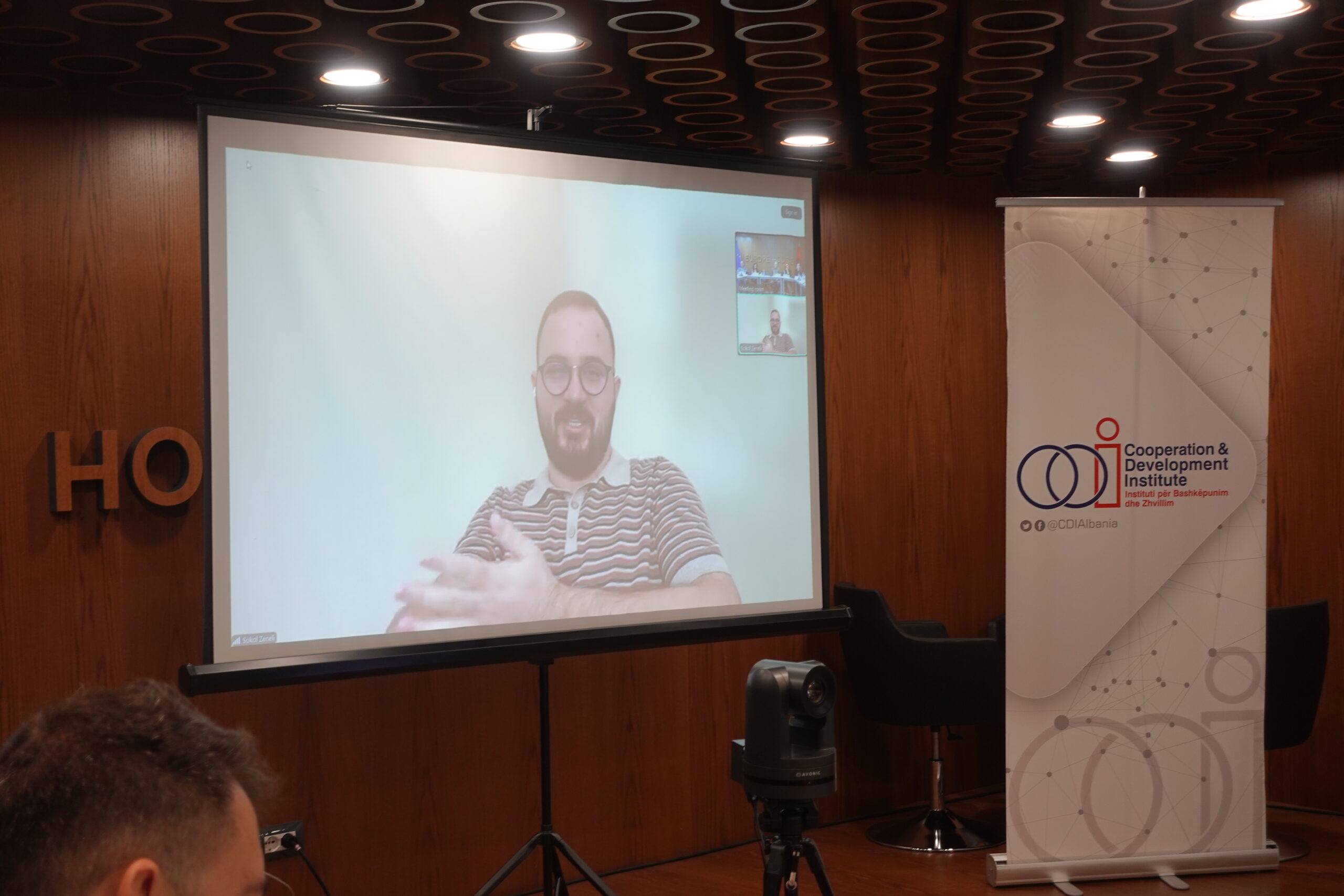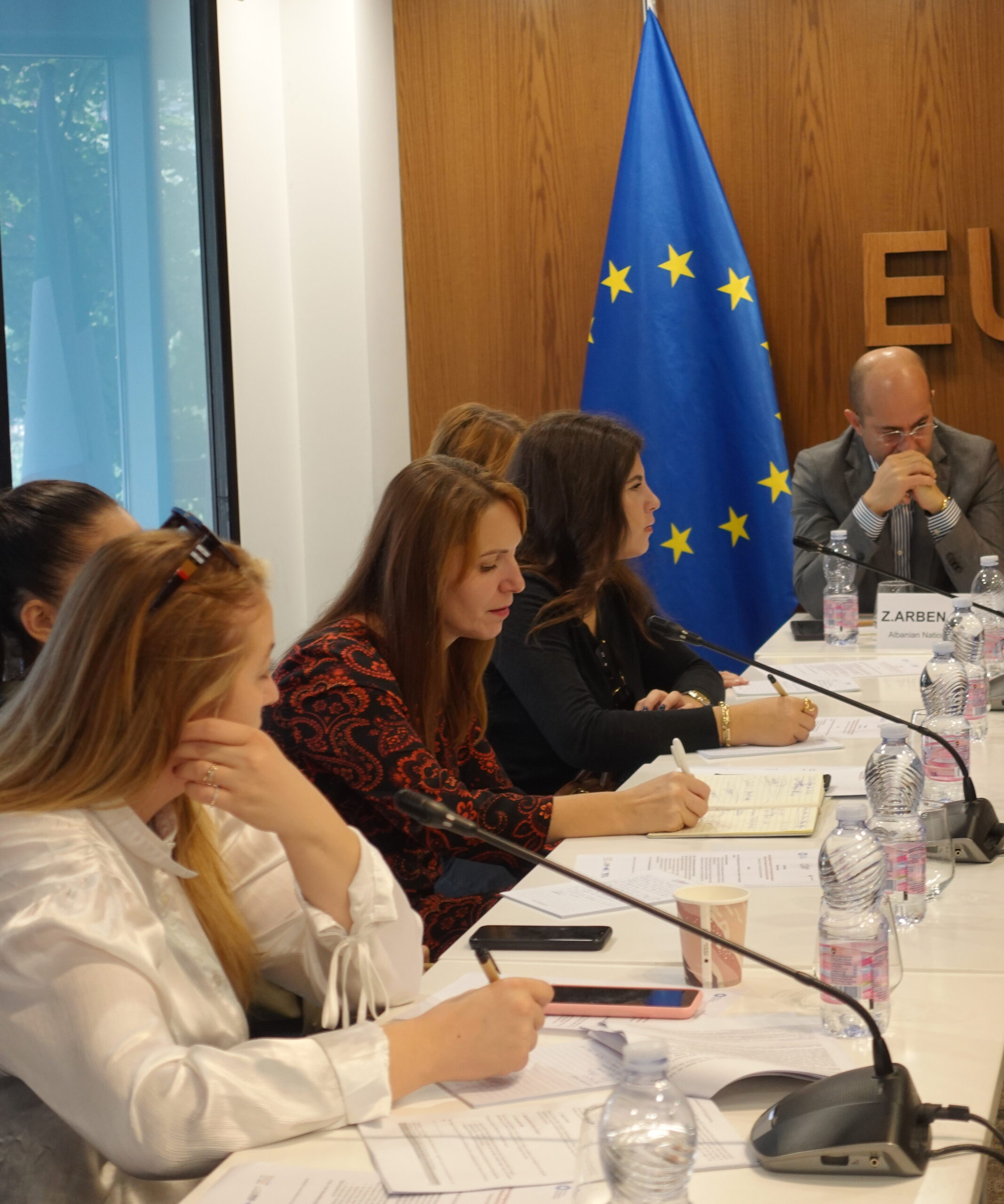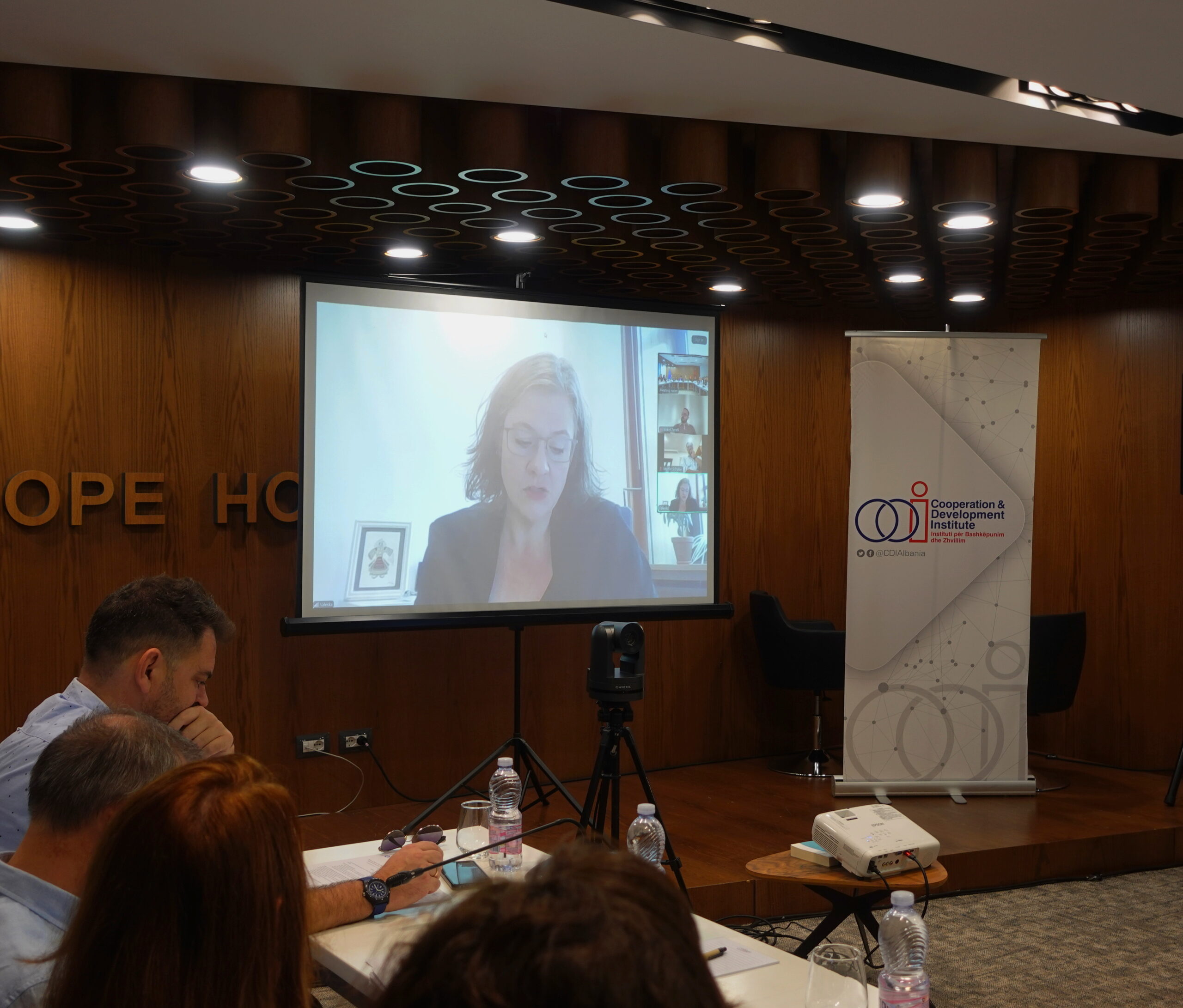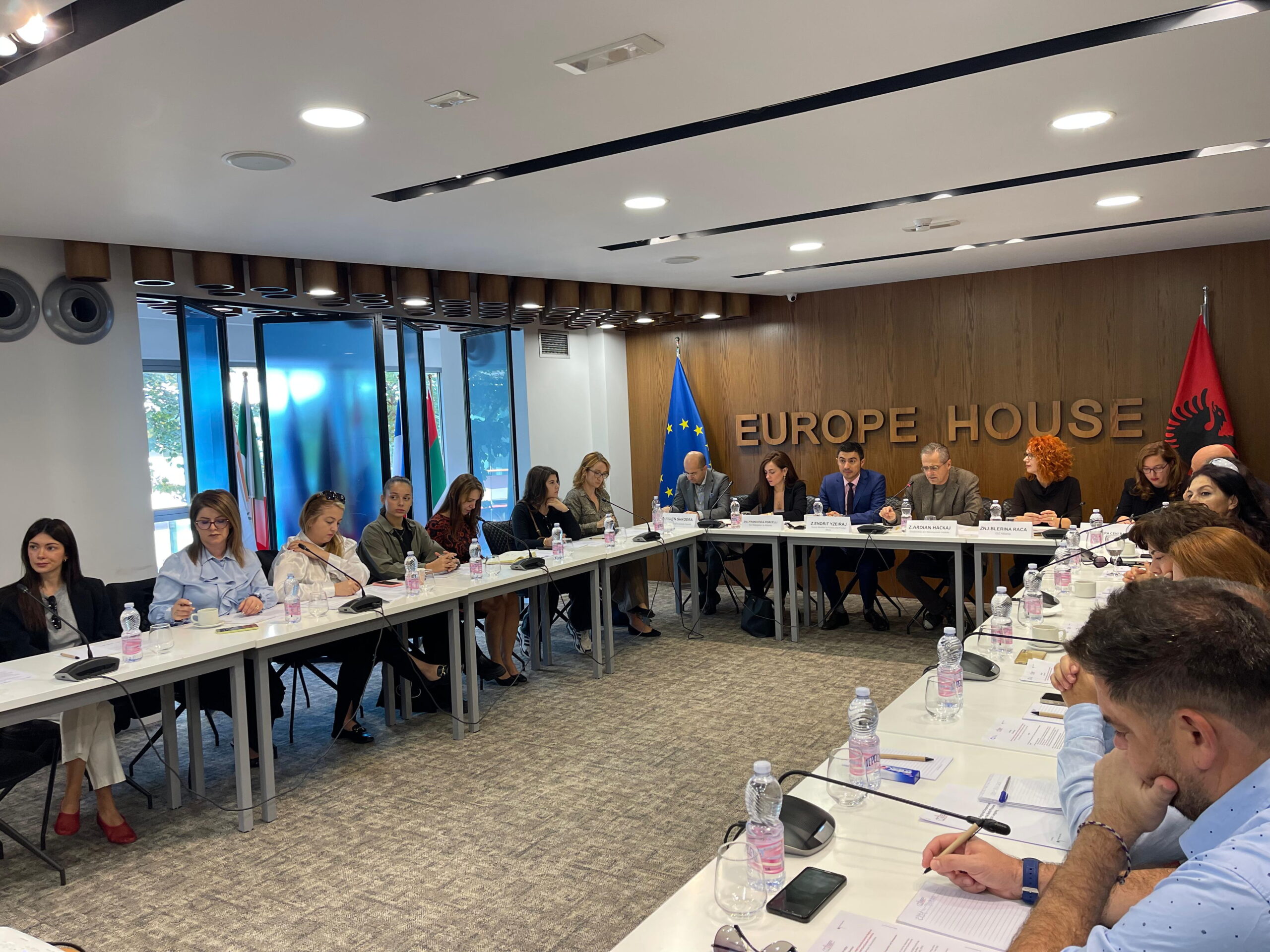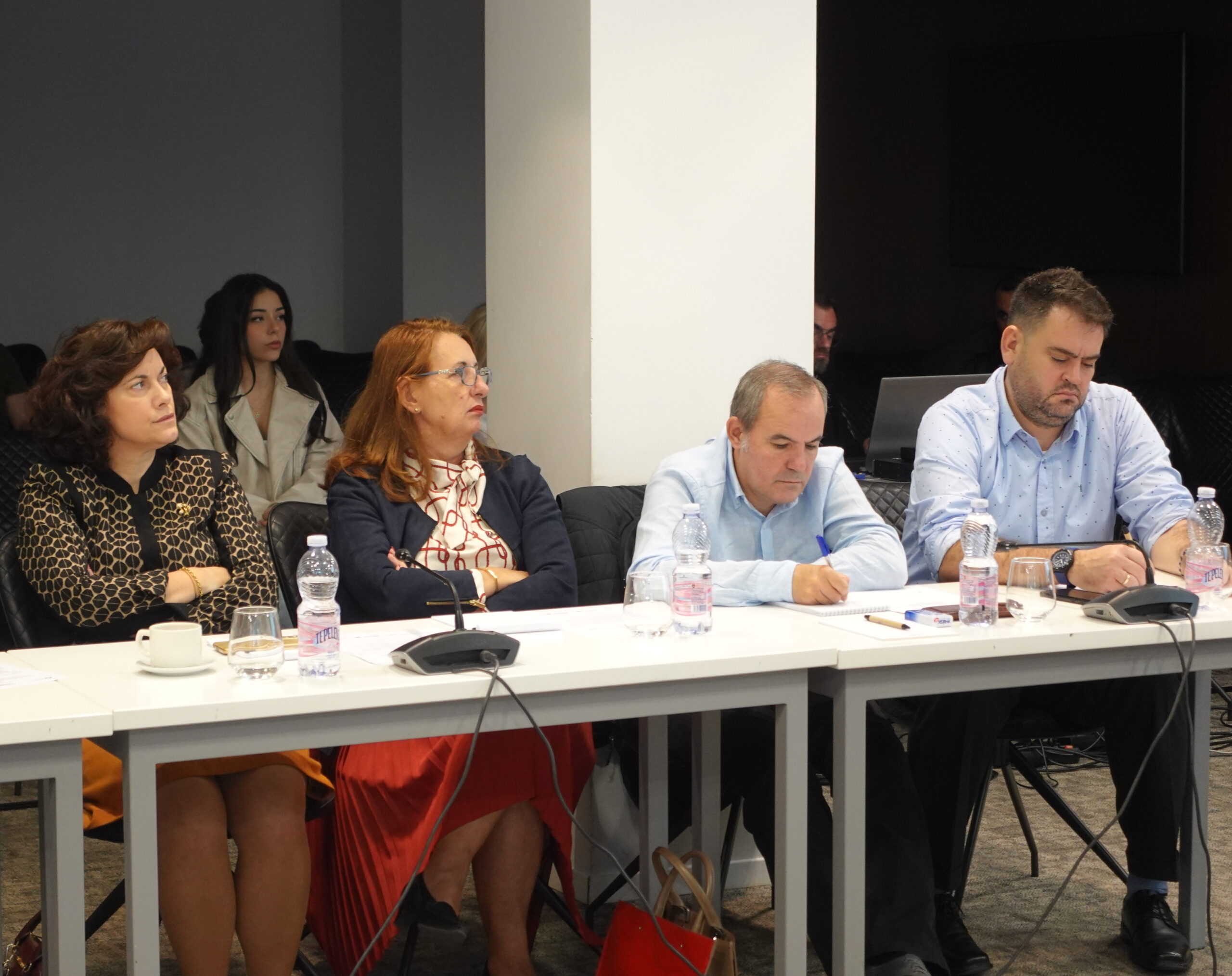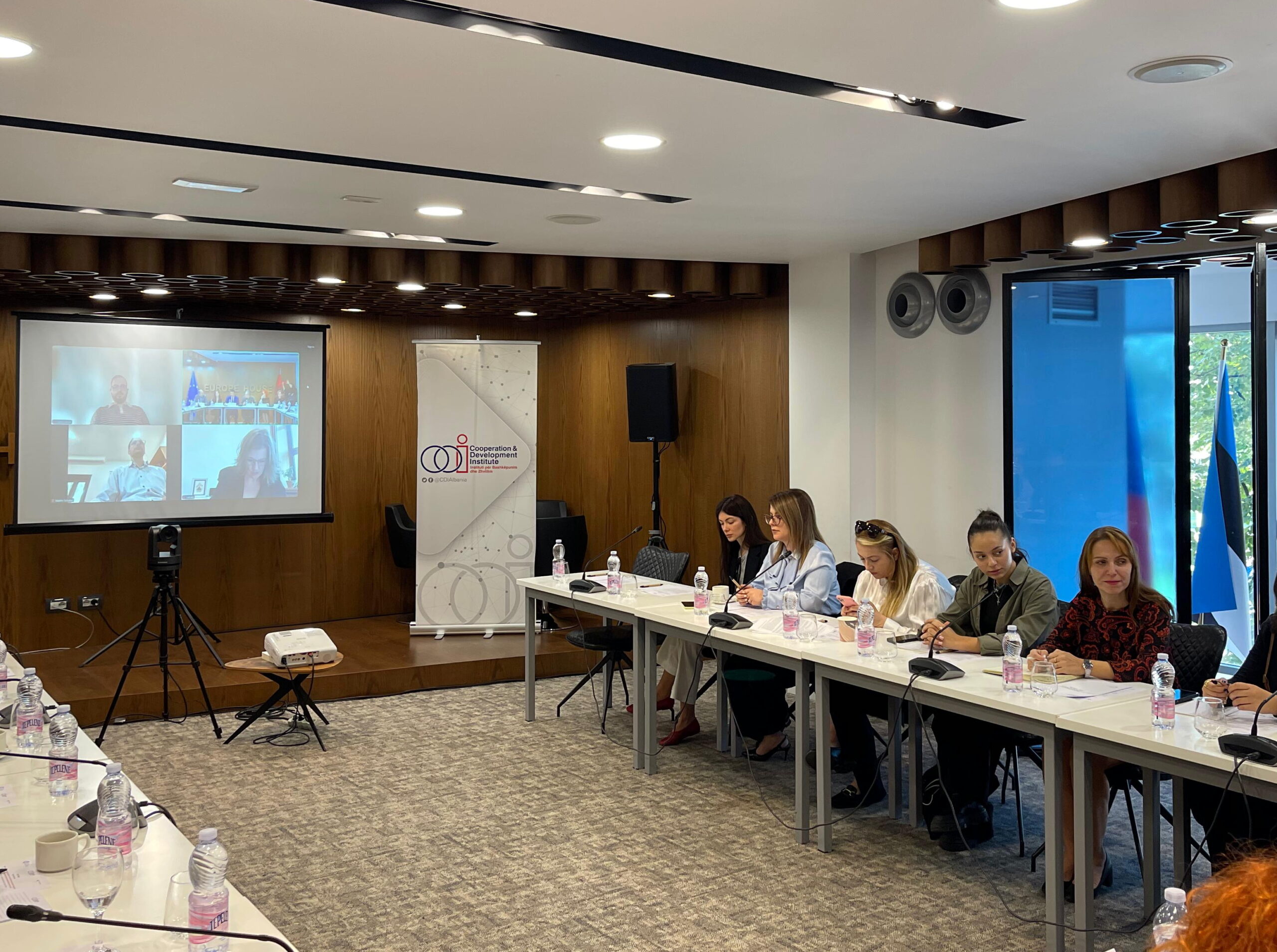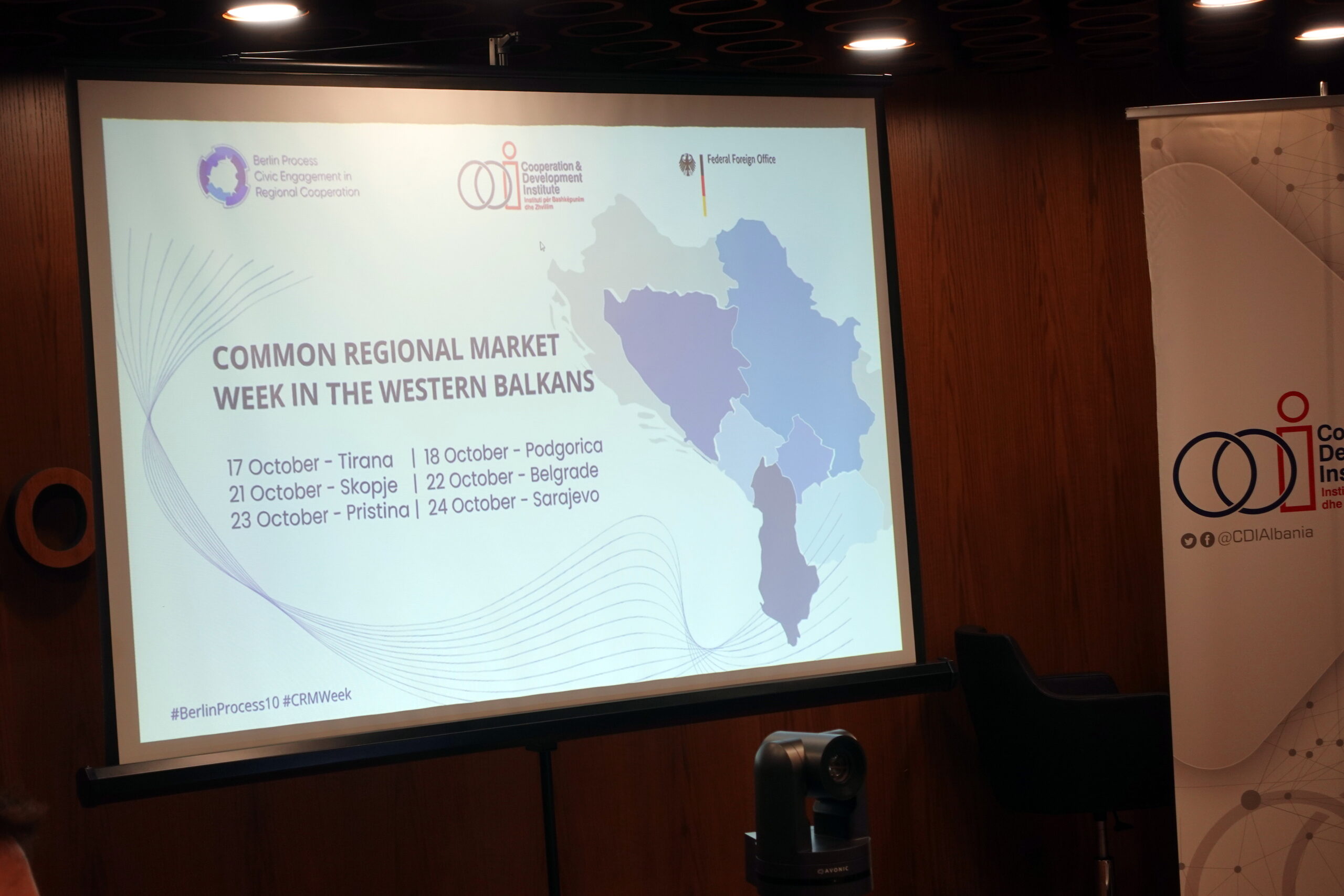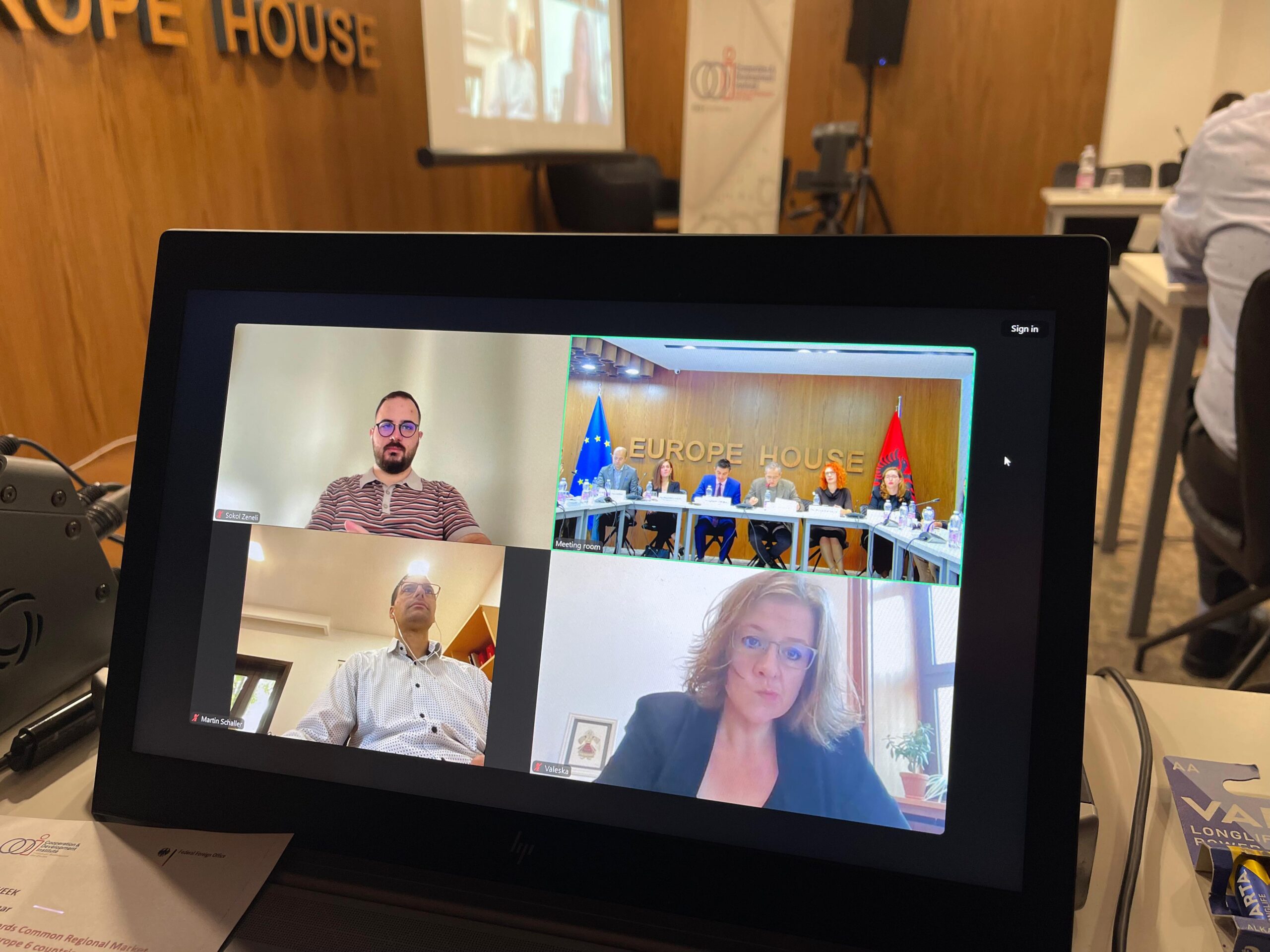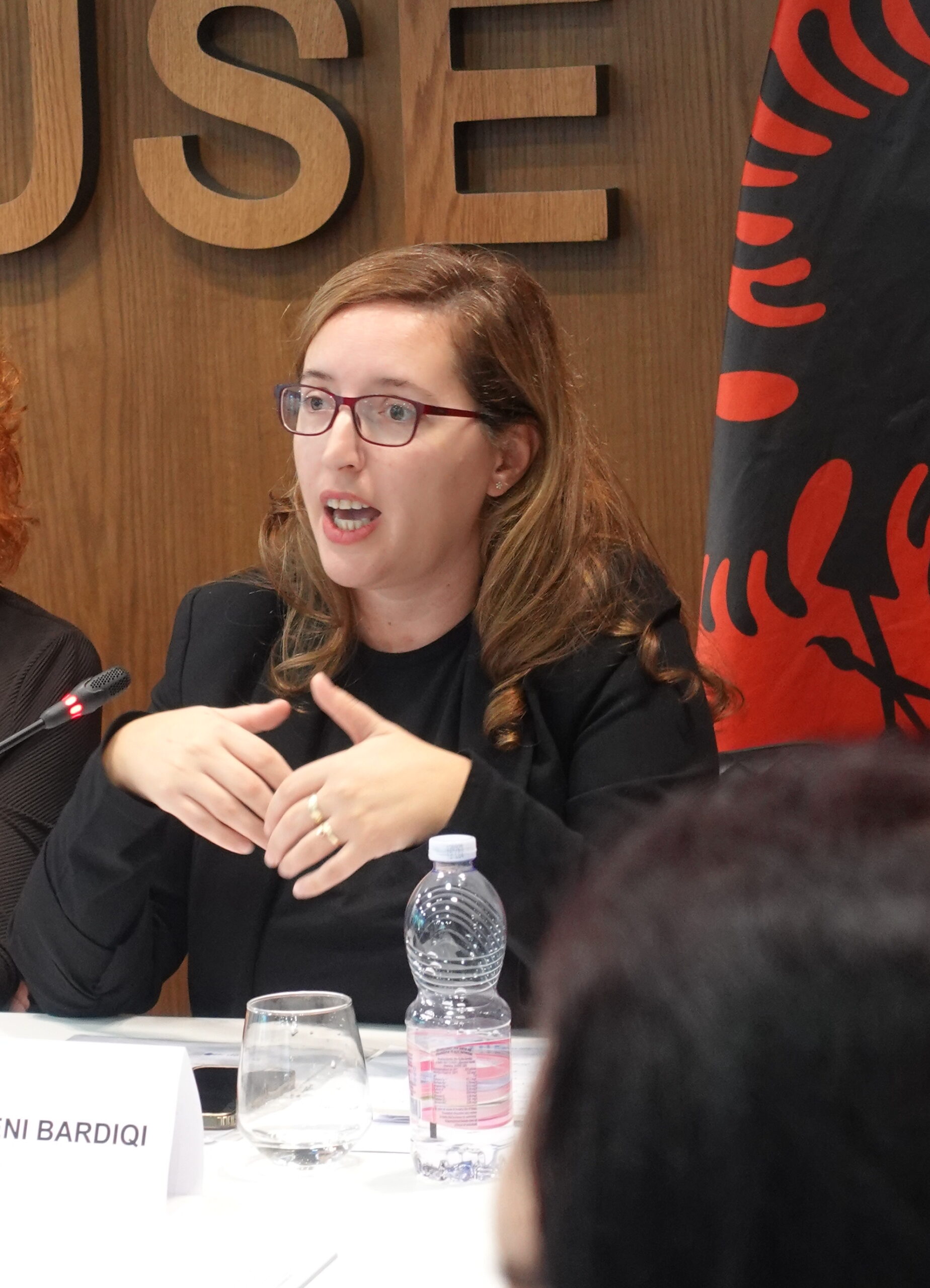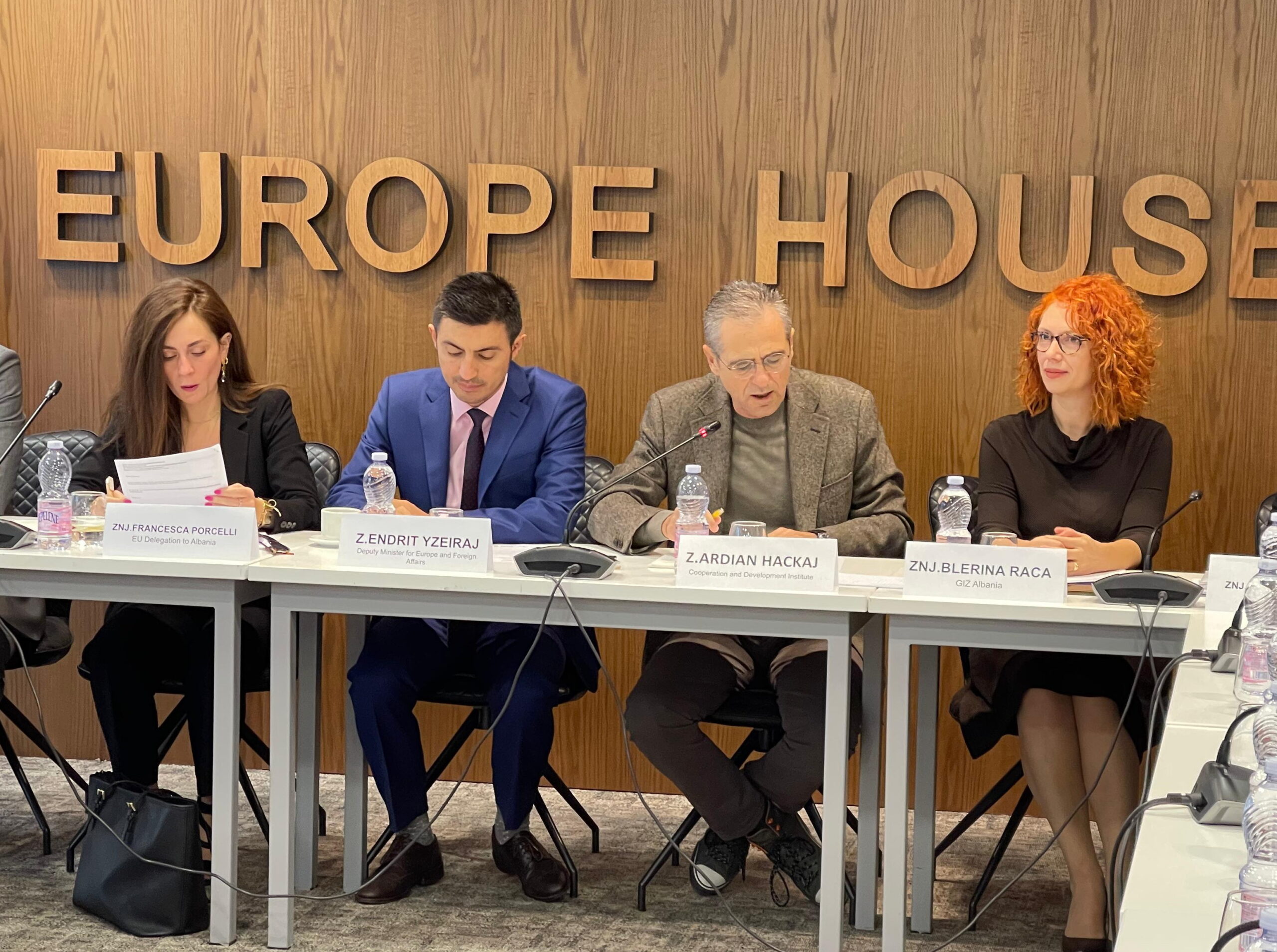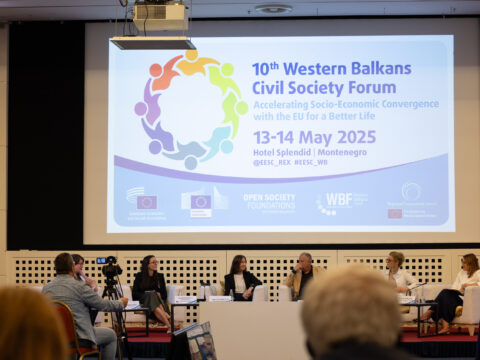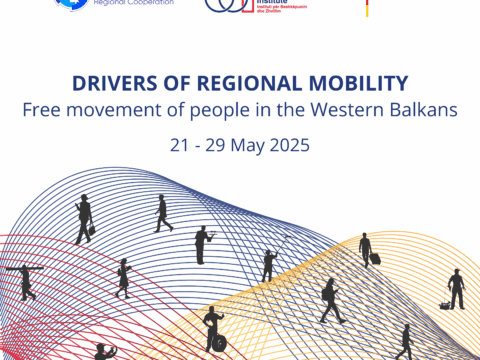TIRANA | The Common Regional Market (CRM) Week in the Western Balkans kicked off today in Tirana highlighting the civil society strong support for regional and economic cooperation, a key dimension and vector of increasing preparedness of region’s societal actors towards EU membership. The week-long events, organized by CDI and its partners, will be held in the capitals of the WB6, focusing on the progress of the Common Regional Market (CRM), the implementation of key reforms, and the region’s path toward integration into the EU Single Market through the Growth Plan.
Based on the EU rules and standards, CRM aims to increase the attractiveness and competitiveness of the region and to bring the region closer to the EU markets. The steps towards the full functioning of the CRM should proceed in parallel with an accelerated integration and “phasing-in” to the EU’s Single Market. Taking place right after the 10th Summit of the Berlin Process, the Tirana seminar served as a platform to bring in takeaways from the Summit, discussing the latest developments and commitments and the synergies between the CRM and the Reform and Growth Facility reforms.
Ms. Valeska Esch, Senior Adviser to the Federal Government’s Special Representative for the Western Balkans, representing the German Federal Office, highlighted the key achievements of the Berlin Process in advancing the Common Regional Market (CRM). She emphasized the pivotal role of the CRM in bringing Western Balkan countries closer to EU membership and supporting both their accession efforts and broader EU integration processes. Ms. Esch reaffirmed the continued involvement of the German Special Envoy Office in ensuring the implementation of Berlin Process commitments, aimed at delivering tangible benefits to the citizens of the Western Balkans.
Albanian Deputy Minister for Europe and Foreign Affairs Endrit Yzeiraj, underscored Albania’s proactive role in implementing the CRM, as well as its commitment to fostering regional collaboration. He highlighted the Albanian government’s strong political will to further contribute to the region’s economic integration, reinforcing Albania’s dedication to bringing the Western Balkans closer together on the path toward greater economic cooperation and alignment with European standards.
Ms. Olivera Ceni Bardiqi, representing the Central European Free Trade Agreement (CEFTA), emphasized CEFTA’s strong commitment to achieving tangible outcomes through its active role in shaping CRM 2. She highlighted that CEFTA’s approach prioritizes inclusive collaboration, ensuring that all relevant stakeholders are engaged in the process. In this framework, CEFTA is developing national strategies for each CEFTA party that will outline how to involve and integrate the business community in improving business inquiries through improved reporting mechanisms.
One of the key topics of the event was the linkage between the Common Regional Market (CRM) and the Growth Plan (GP), which is viewed as a crucial bridge between the CRM and the EU’s Single Market. Ms. Francesca Porcelli, Growth Plan Coordinator at the EU Delegation to Albania, described the GP as an innovative initiative by the European Commission to frontload membership benefits for Western Balkan countries. She then urged Albania and other WBs countries to progress in the implementation of reform agendas and thus benefiting EU’s financial support under the Reform and Growth Facility.
Ms. Blerina Raca of GIZ Albania shared valuable insights on the institutional efforts involved in adopting the Single Market acquis in Albania and the need to strengthen the administrative capacities in managing the requirements of the accession negotiations phase. She emphasized that political will is crucial not only for making political commitments but also for integrating them into the national legal framework, as demonstrated by the work GIZ Albania supports towards the full implementation of the CRM Mobility Agreements.
Bringing in private sector perspective to the discussion, Mr. Arben Shkodra, Secretary General of Albanian National Economic Council emphasized the necessity for standardization in the certification of skills for professionals across all sectors. In this momentum of accelerated EU integration efforts, he called for high attention to prepare the private sector actors to be informed, supported and engaged in the overall efforts to bring the WBs closer to EU Single Market standards, values and rules. In this regard, increasing the footprint of the private sector in the discussion tables is crucial.
Sokol Zeneli, CDI’s expert, shared some of the findings from an ongoing research CDI is carrying out on the Reform and Growth Facility reform agendas. He highlighted the importance for robust monitoring and evaluation framework for the reform agendas, as well the necessity for clear and transparent guidance from the EC on the evaluation of the conditionality under the GP. The paper will be published very soon by CDI.
Supported by the German Federal Foreign Office, CDI has been actively involved in promoting an inclusive policymaking process, ensuring greater citizen engagement and societal backing for regional cooperation. Since early 2023, CDI has monitored the CRM’s mobility agreements implementation and has supported RCC in carrying out the CRM AP 2025-2028 consultation with civil society actors.



